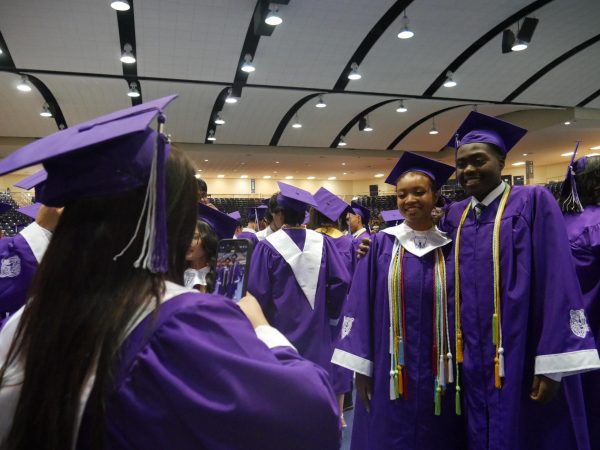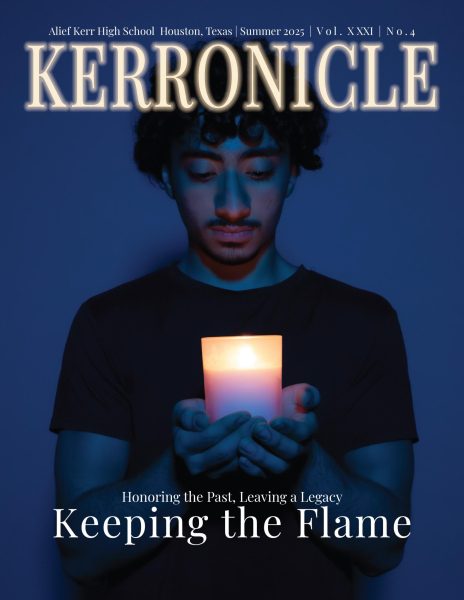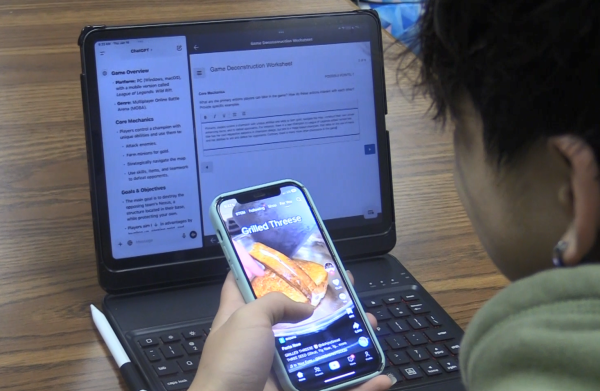Abbott vs. O’Rourke
Photo by Gage Skidmore
Beto O’Rourke (left) and Gov. Abbott (right); images by Gage Skidmore used under the Creative Commons Attribution-Share Alike 3.0 Unported license.
The Upcoming Election for Texas Governor
On November 8, the voters of Texas will get their chance to decide who they want to lead the state of Texas: the incumbent Republican Gov. Greg Abbott, or his Democratic challenger Beto O’Rourke.
Both of these candidates are not new to the political scene, as Abbott has previously served as the 50th Attorney General for Texas from 2002 to 2015, and has served as the 48th Governor since 2015. He has been elected for two terms, and is now running against O’Rourke to keep his position for a third term.
O’Rourke is a former congressman, having served as the Representative for Texas’s 16th congressional district in the House of Representatives from 2013 to 2019. He also attempted to become the Democratic nominee for President in 2020, and ran against Sen. Ted Cruz for the U.S. Senate in 2018, failing to win in both the Senate race and his presidential bid.
Now in a bid for the office of Texas Governor, O’Rourke is planning for major reforms to the state of Texas after over two decades of Texas being a Republican stronghold.
As ABC News has said, the race is “poised to reshape political power from state capitals to Washington.”
Comparing the two candidates, their election platforms are essentially the opposite to one another, and relatively consistent with the mainstream positions of their respective parties. Abbott is traditionally conservative, hailing himself on his campaign website as a “strong conservative leader” who is for the Second Amendment, pro-life, for increased border security, for lowering taxes, against defunding the police, and he boasts of his “reputation for defending religious liberty.”
O’Rourke, on the other hand, is a liberal. According to his campaign website, he is pro-choice, pro-union, an advocate for providing a legal pathway to citizenship for the millions of undocumented immigrants residing in Texas, a supporter of raising the minimum wage to $15 an hour, a supporter of linking Texas to the national power grid, for the legalization of marijuana, and for expanding Medicare. He also favors gun control; a controversial issue in Texas politics.
“H— yes, we’re going to take your AR-15, your AK-47…” O’Rourke said in a Democratic Presidential Debate at Texas Southern University in September 2019.
Although the majority of O’Rourke’s stances are considered moderate, center-left policies, he has openly stated that he does not “believe any civilian should own an AR-15 or AK-47.” He cites the 2019 El Paso shooting, which occurred in his hometown, an event where a gunman killed 23 people and injured 23 others at a Walmart, as a basis behind this belief. Since that statement at the debate, he has received a lot of criticism, particularly from those who are pro-Second Amendment, but has not backed down from this belief and has continued to defend his support for a mandatory assault weapons buyback program.
In a state with a “gun-loving” reputation such as Texas, O’Rourke’s position appears to be a fringe idea, but the polling data shows that there is support by a large swath of the Texas population for his position.
According to polling done by the University of Texas at Austin’s Texas Politics Project, around 59 percent of Texans support, or somewhat support a nationwide ban on semi-automatic weapons, whereas 33 percent of Texans oppose, or somewhat oppose it. On a mandatory buyback program, polling done by the University of Texas at Tyler’s Center for Opinion Research found that nearly half of Texans supported a mandatory buyback program, compared to just 29 percent who opposed it.
On the issues overall, “What would you say is the most important problem facing the State of Texas today?” was a question posed by UT Austin’s Texas Politics Project as a way to gauge the concerns facing Texans as they enter into this election.
According to the polling data, 16 percent of voters believed that border security is the most important issue, followed by 14 percent who responded with immigration, 10 percent who responded with political leadership/corruption, another 10 percent who responded with inflation, eight percent who responded with abortion, and seven percent who responded with gun control/violence.
With a smaller but still significant percentage of Texas voters who believe that abortion and gun control/violence are the most important issues facing the state, the lead held by Abbott over O’Rourke has slightly changed in response to major events that involve these issues, such as the Uvalde school shooting, and the Supreme Court’s overturning of Roe. v. Wade.
According to a Quinnipiac University poll published in mid-June, Abbott’s 15 point-lead dropped to only 5 points over O’Rourke following the shooting at Robb Elementary School in Uvalde, Texas. A similar bump for O’Rourke occurred following the overturning of Roe v. Wade, with Abbott’s lead over O’Rourke dropping from 10.4 percentage points before the ruling by the Supreme Court, to a lead of 9.6 percentage points after the overturn.
But despite all the marginal boosts O’Rourke has received throughout the Texas gubernatorial race so far, and despite the shrinking lead between the two candidates; Abbott is still the favored candidate to win, and will most likely be able to secure his third term as the Governor of Texas.
As Mark Jones, a professor of Political Science at Rice University said in an interview with ABC 13, “He [O’Rourke] can narrow the margin, but Beto needs some sort of October surprise or a phenomenal turnout machine that turns out younger voters in a way which we haven’t seen in the past decades. Without that, he’s going to lose.”
Your donation empowers the student journalists of Alief Kerr High School. With your help, we can continue producing meaningful stories and quality content just like this. Every contribution goes toward purchasing essential equipment and covering our annual website hosting fees.






